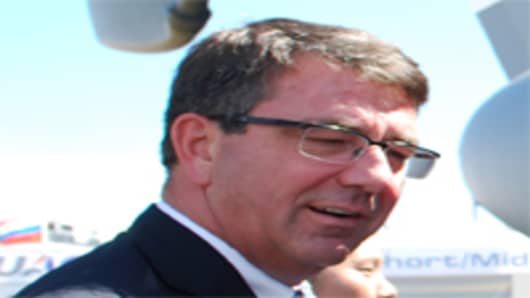Major defense and aerospace companies are aware that an inflection point has been reached with the U.S. military budget and costs can not keep climbing, a senior Pentagon official said Monday.
Speaking at the Farnborough International Airshow, Ashton Carter, the under secretary of defense for acquisition, technology and logistics stressed the importance of the Pentagon's procurement and services efficiency project, noting the need for restoring affordability to military contracts.
"You have to play the game that's on the field," Carter said, referring to how companies would have to adjust to a Pentagon budget that can not continuing grow.
"We can not have costs grow year after year," he said.
Companies also understand that working under a tighter budget is also preferable to the alternatives, such as broken programs, uncertainty in business outlook and, at worst, lost capability for the military.
Carter noted the F-35 joint strike fighter program as a specific example of how things should not operate. The projected cost per fighter was recently revised from more than $50 million per plane to $93 million.
Lockheed-Martin's joint strike fighter program is already the most costly weapons project in the Pentagon's history, according to published reports.
Among the top priorities of the efficiency program, Carter highlighted the need to review the contract structure and the fixed-priced nature of the early procurement.



